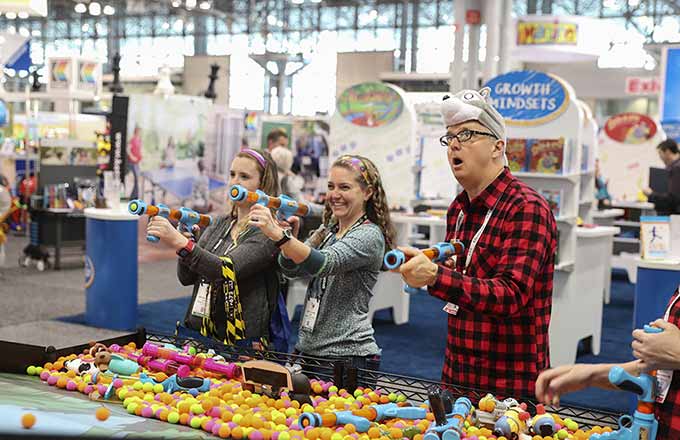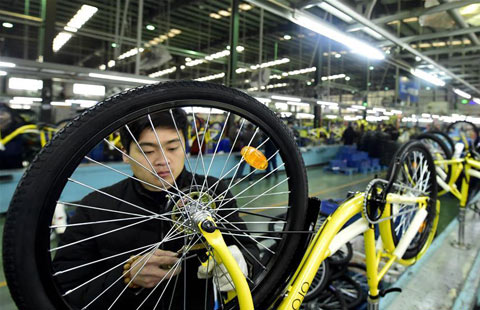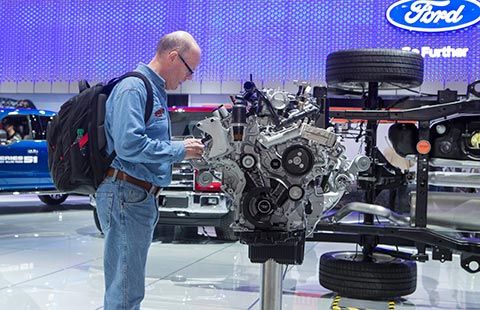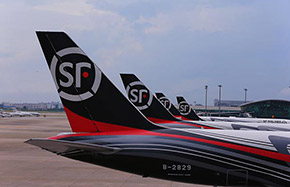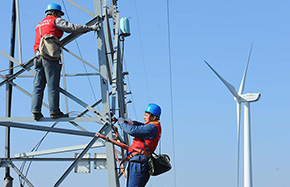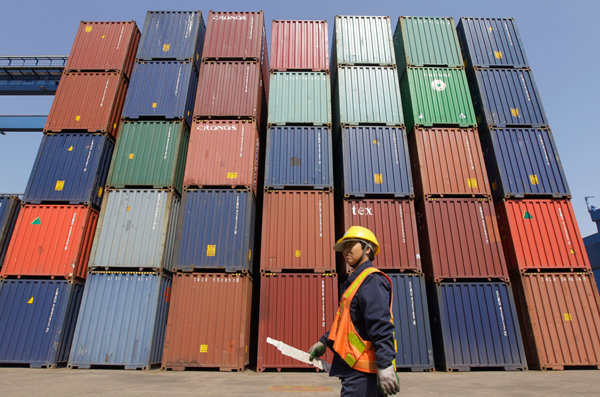Car parts found to contain toxic contents
By CHEN XIN (China Daily) Updated: 2013-04-09 23:46Carcinogenic substances have been found in samples of cars parts, according to a study by an auto website and State broadcaster China Central Television.
Polycyclic aromatic hydrocarbons, or PAHs, which can cause cancer, were found in vehicles including the Chang'an Alsvin, the Mitsubishi Outlander, Hyundai's New Santa Fe and the Chevrolet Aveo, said Xiu Yu, general manager of auto website Chewen.
Xiu said his website had received reports from car users complaining of unpleasant odors in their cars, and some people even felt dizzy after driving for a long time.
Since the middle of last year, Xiu had entrusted a car repair company in Beijing to order original auto parts including steering wheels and headrests of 44 types of vehicles.
Xiu had those auto parts examined by Centre Testing International and found most of them contained PAHs.
Shanghai GM, General Motors' joint venture in China, said in a statement on Monday that testing in September found no PAHs in Aveo's parts and the company doubted the authenticity of the parts tested by Chewen.
Chang'an, based in Chongqing, released a statement online saying the company is investigating the claims made in the report.
China has no standard for the content limit of PAHs in auto products, so people do not know how harmful the chemical can be, Xiu said.
In Germany, the limit is 10 mg/kg for adults, and 0.2 mg/kg for children under 3.
"Babies could possibly touch those parts so it would be harmful for them," said Xiu.
Xiu said they also bought two steering wheels in Germany, one for a Chevrolet Aveo, but found no PAHs in any of them.
"We hope the quality watchdog could pay attention to the issue and set standards to limit PAHs in auto products," he said.
Zhao Ping, vice-president of the Cancer Foundation of China, said PAHs are common in our daily lives.
"PAHs may not directly relate to cancer but the chemical could probably increase the risk of contracting cancer," he said.
Ge Youshan, a lawyer specializing in consumer rights with the Beijing Lawyers Association, said auto manufacturers should have a sense of responsibility to ensure customers' legal rights rather than merely pursuing profits through lowering costs.
Car producers should compensate customers if their products cause injury or illness, he said.
"Automakers should regulate their parts production and supply, and adopt the same standards in every market," said Ge.
The General Administration of Quality Supervision, Inspection and Quarantine did not respond to questions from China Daily by Tuesday.
- Hisense debuts dual-screen smartphone
- China's largest production base for industrial drones under construction
- Baidu reports stable 2016 revenue growth
- He Lifeng appointed NDRC director
- A model wants to thank Jack Ma
- Central bank drains more money from market
- Lenovo revenue in Turkey up 61% in 2016
- Shandong leads in fixed-asset investment in 2016


